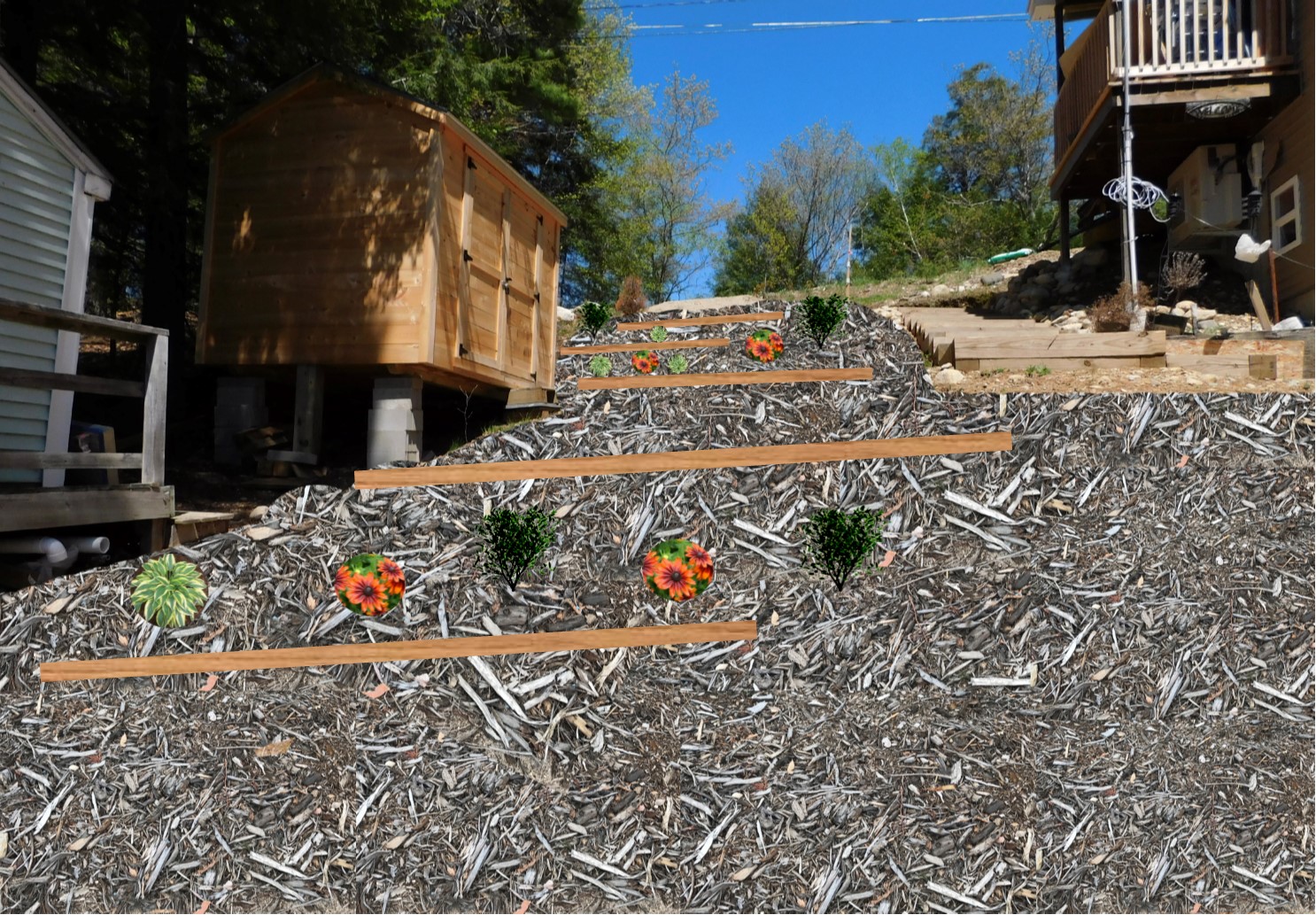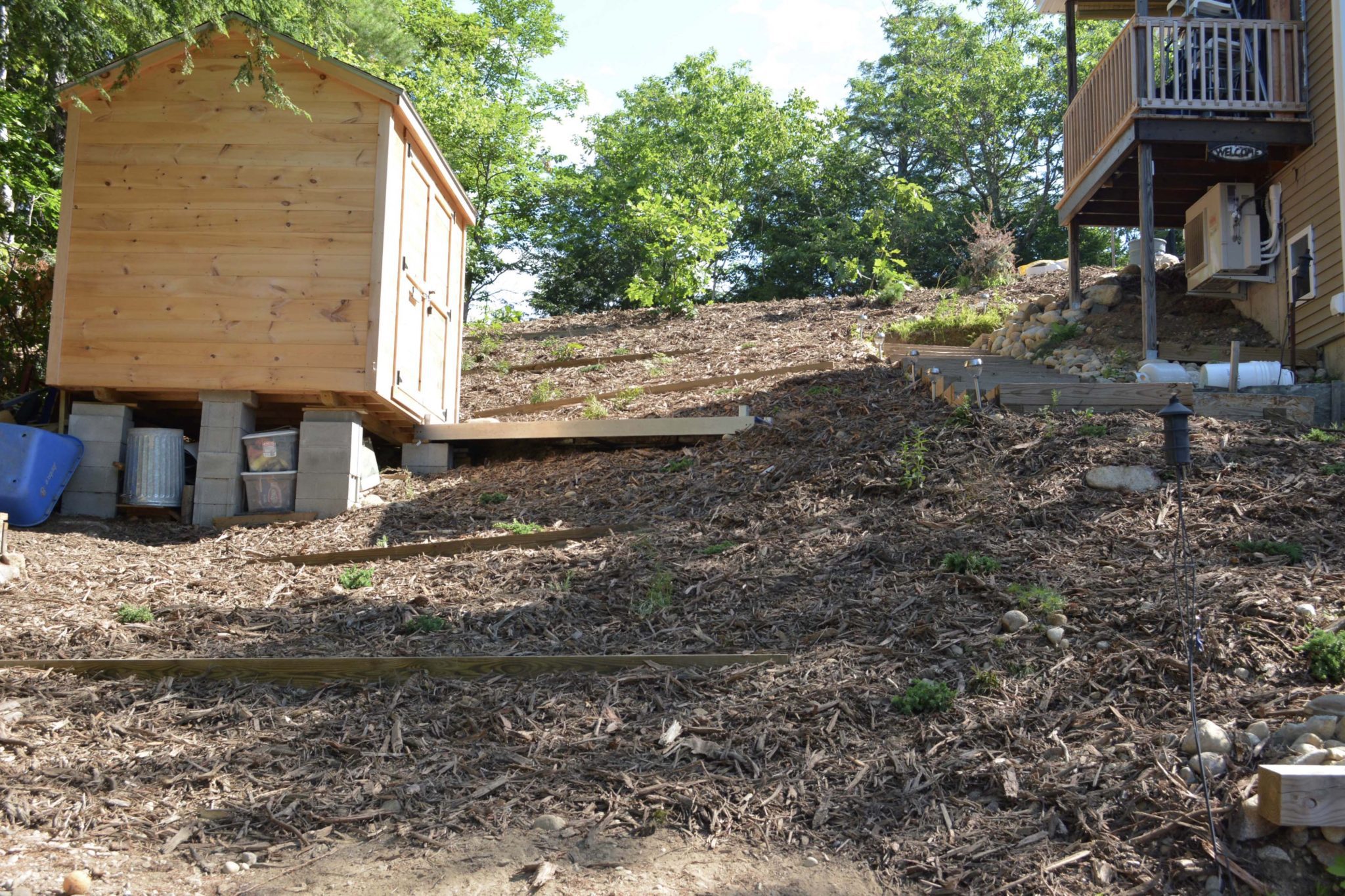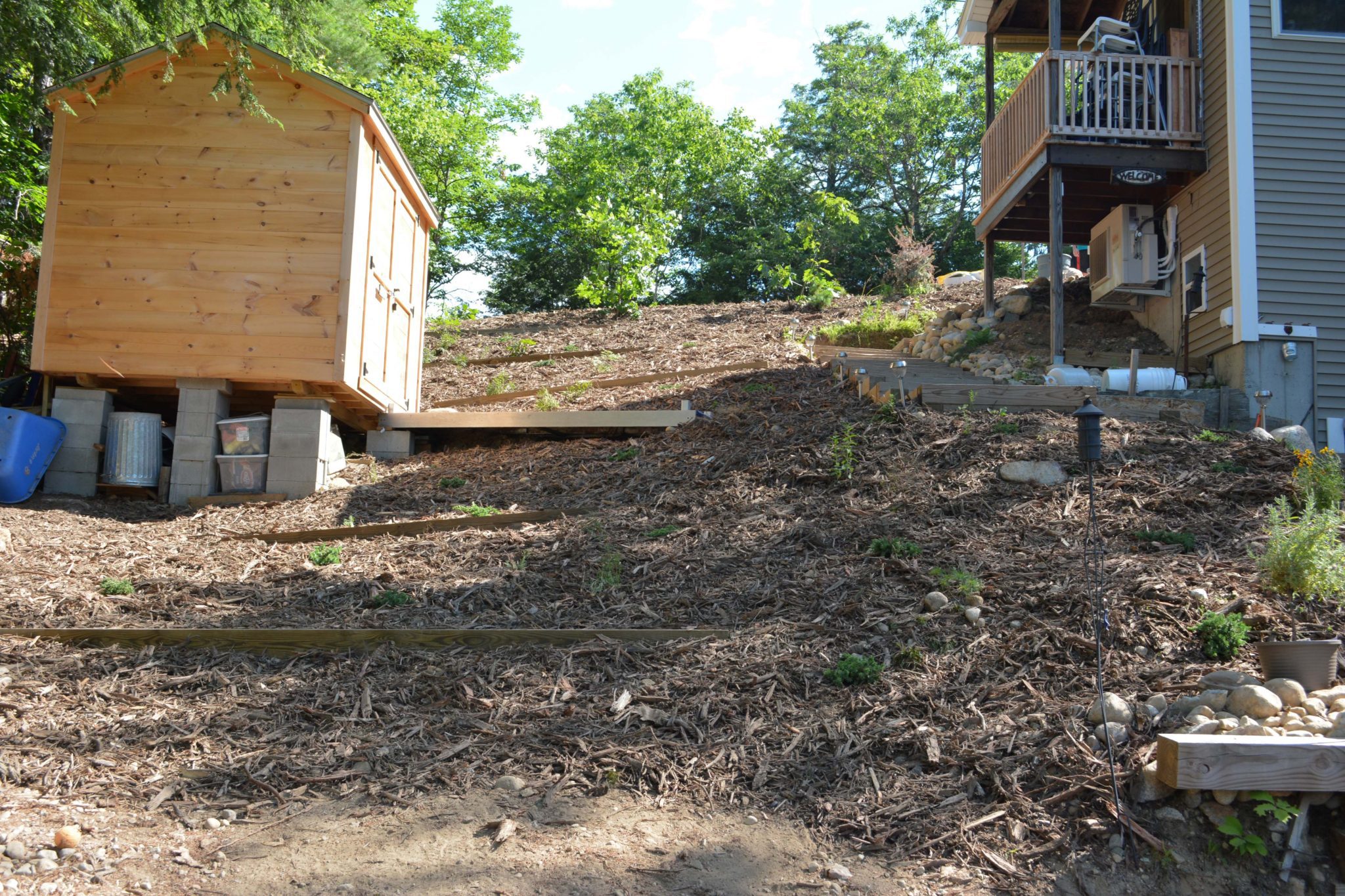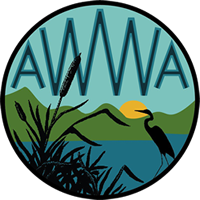Technical Assistance
AWWA’s Program Manager offers free technical assistance consultations with property owners interested in protecting water quality. The Program Manager will meet with the owners to learn how the property is used, assess any impacts to lake water quality, and make recommendations and a design for actions to correct those impacts. We will give you the knowledge to make your property more lake friendly. If you qualify, you can become a project host for our Youth Conservation Corps program.



Before
Design
After YCC Project



Erosion Quiz
Take our quiz! If you’re in our service area, this quiz will help us determine if you have erosion or runoff issues on your lakefront property. After you submit your quiz, we’ll contact you to discuss your results and set up a free technical assistance site visit. The lakes in our service area include: Balch, Belleau, Pine River, Province, Great East, Horn, Ivanhoe, Lovell and Wilson.
Permitting
Maine: It is important to note that all activities within 250 feet of the Reference Line (high water mark) are within the jurisdiction of the Maine Shoreland Zoning Act . A permit is required when activity is located in, over, or adjacent to lakes, rivers, streams and wetlands. In Maine, “an “activity” is (A) dredging, bulldozing, removing or displacing soil, sand, vegetation or other materials; (B) draining or otherwise dewatering; (C) filling, including adding sand or other material to a sand dune; or (D) any construction, repair or alteration of any permanent structure”. Installing simple best management practices (BMPs) such as rain gardens, rubber razors, waterbars, and dripline trenches along the shoreline do require a permit. You can contact Maine Department of Environmental Protection for specific information on permitting.
New Hampshire: It is important to note that all activities within 250 feet of the Reference Line (high water mark) are within the jurisdiction of the New Hampshire Shoreland Water Quality Protection Act. In NH, any work “within the protected shoreland, new construction or construction that modifies the footprint of existing impervious surfaces, using mechanized equipment to either excavate, remove or form a cavity within the ground and filling any areas with rocks, soil, gravel or sand requires a shoreland impact permit”. You should not need permits if installing simple best management practices (BMPs) using hand tools. These include, but are not limited to: rain gardens, rubber razors, waterbars, and dripline trenches etc. You can contact New Hampshire Department of Environmental Services (NHDES) for specific information on permitting. You can also use their interactive tool to determine if a permit is needed.
Did you know that you can check on the status of submitted NHDES Wetland and Shoreland permits?
Town Level: For any work conducted along the waters edge, it is important to consult the town’s code enforcement officer to ensure you are not in voilation. Typically, if a state permit is required, a town permit is also necessary.
For more information or to set up a site visit, call 603-473-2500. You can also send a note via our contact form.
